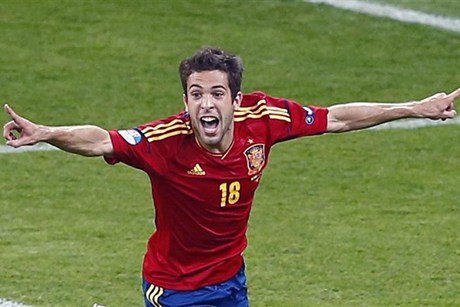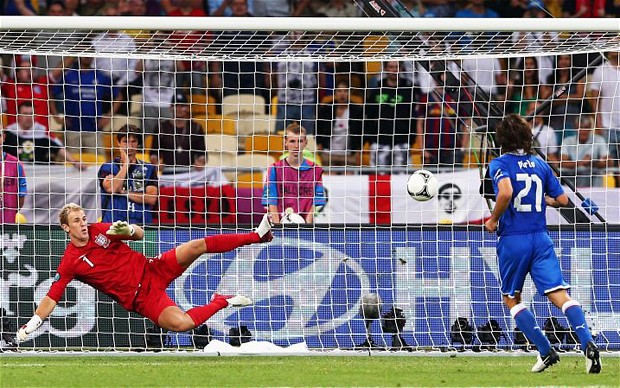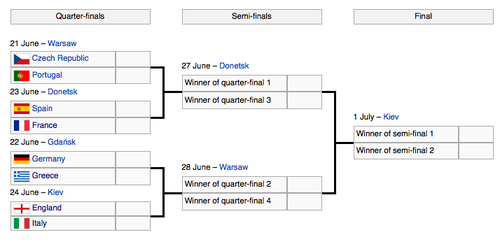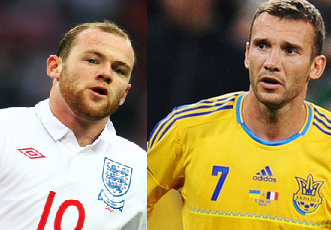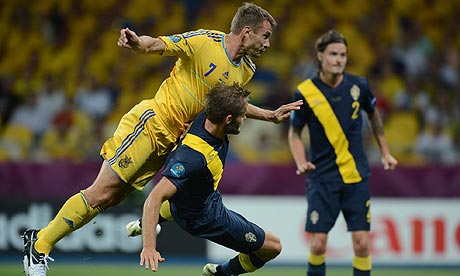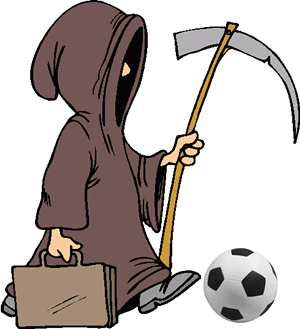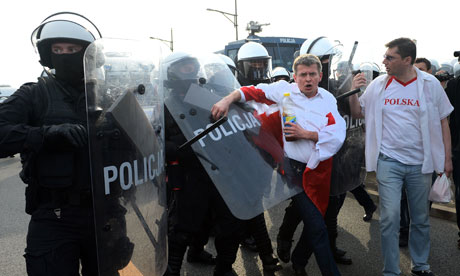Expect to see more soccer on American TV.
The trend of increasing U.S. TV soccer viewership continued with the 2012 European Championship, with Americans tuning in throughout the tournament but particularly for Spain’s 4-0 mauling of 10-man Italy in the final. As such, even new viewers could probably repeat the super-over-reported stat that Spain became not only the first country to win consecutive Euros but also the first to win an unprecedented three major international tournaments in a row, factoring in the 2010 World Cup. But since the achievement really is pretty phenomenal, we’ll repeat it, too.
Overall, the U.S. audience jumped 51% over that of Euro 2008. The surge is particularly striking when you consider that the numbers include no big-four broadcast network coverage, but rather just ESPN. (ABC and ESPN partnered in 2008.)
Top Viewership Numbers in Euro 2008 and Euro 2012:
Sun, July 1, 2012 ESPN Spain vs. Italy 4,068,000
Sun, June 29, 2008 ABC Germany vs. Spain 3,761,000
Sun, June 24, 2012 ESPN England vs. Italy 2,968,000
Sun, June 10, 2012 ESPN Spain vs. Italy 2,113,000
Wed, June 27, 2012 ESPN Spain vs. Portugal 1,952,000
Sun, June 22, 2008 ESPN Spain vs. Italy 1,911,000
Thu, June 28, 2012 ESPN Germany vs. Italy 1,851,000
Sat, June 21, 2008 ABC Netherlands vs. Russia 1,838,000
Sat, June 9, 2012 ESPN Germany vs. Portugal 1,798,000
Sat, June 23, 2012 ESPN2 Spain vs. France 1,758,000
Considering the final week of the tournament coincided with Wimbledon, the Tour de France and various golf tournaments, the numbers actually mean something. It’s not like there was nothing else on TV. Some speculate that England’s entry into the quarterfinals helped garner the attention of their American cousins, or perhaps new viewers tuned in to learn what all the fuss was about with regard to Spain. Hard to know. Regardless, the objective data will make broadcasters and advertisers take note.
Over the course of 31 matches in the three-week tournament, an average of 1,300,000 viewers tuned in, versus the 859,000 viewer average in 2008.
Incidentally, these numbers reflect English language broadcast only. On Spanish-language TV, the final posted a 28% uptick in viewers, for an ESPN Deportes total of 1,125,000 viewers, making it the second highest-rated European soccer match ever on a Spanish-language sports cable network.

